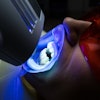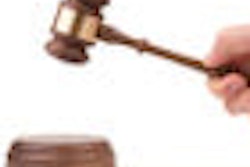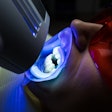
The U.S. Federal Trade Commission (FTC) is considering the North Carolina State Board of Dental Examiners' appeal of a July ruling that the board's efforts to block nondentists from providing teeth-whitening services constitute an illegal anticompetitive conspiracy.
The dental board's actions violated the law, according to a decision issued July 14 by Chief Administrative Law Judge D. Michael Chappell, who concluded it was "unreasonable restraint of trade and an unfair method of competition."
“They made up their minds a long time ago.”
— Noel Allen, attorney
Chappell determined that "dentist members of the dental board had a common scheme or design, and hence an agreement, to exclude nondentists from the market for teeth-whitening services and to deter potential providers of teeth-whitening services from entering the market," the FTC said.
The board filed an appeal of that decision on August 25 that, among other things, claimed that Chappell "engaged in a cherry-picking exercise to consider only evidence of potential economic harm caused by exclusionary conduct" and "did not consider the context in which such conduct occurred, i.e., as an enforcement mechanism by a state agency charged by statute with regulating the practice of dentistry in North Carolina."
On October 28, during the appeal hearing, three FTC commissioners heard testimony from both sides.
"There were some good questions," Noel Allen, attorney for the dental board, told DrBicuspid.com. "But my every instinct is that this is a foregone conclusion because the heart of the matter is about state action and public protection, and they indicated early on that those are not considerations. They made up their minds a long time ago."
In North Carolina, teeth-whitening services provided by nondentists often are available at salons, retail stores, and mall kiosks. The state's dentists offer whitening services in their offices and also provide take-home kits.
In June 2010, the FTC initiated an action against the dental board, alleging that the board violated federal law by blocking nondentists from providing these services. According to the complaint, the dental board sent 42 letters instructing nondentist teeth-whitening providers that they were practicing dentistry illegally and ordering them to stop.
The complaint also alleged that the dental board sent at least 11 letters to third parties -- including mall owners and property management companies -- stating that teeth-whitening services offered in malls are illegal.
In November 2010, the board filed a motion seeking to dismiss the FTC's charges based on the state action doctrine. On February 1, 2011, the board filed a lawsuit against the FTC, accusing the commission of violating the U.S. Constitution in its attempts to keep the board from regulating teeth-whitening services offered by nondentists.
On February 8, the FTC denied the board's motion to dismiss the FTC's complaint, unanimously rejecting the board's argument that the state action doctrine exempts it from antitrust scrutiny under the Federal Trade Commission Act.
Following the October 28 hearing, the full commission must now decide whether to uphold or overturn the administrative law judge's initial decision, an FTC spokesperson said in an email to DrBicuspid.com. That will likely happen "several weeks from now," he said.



















